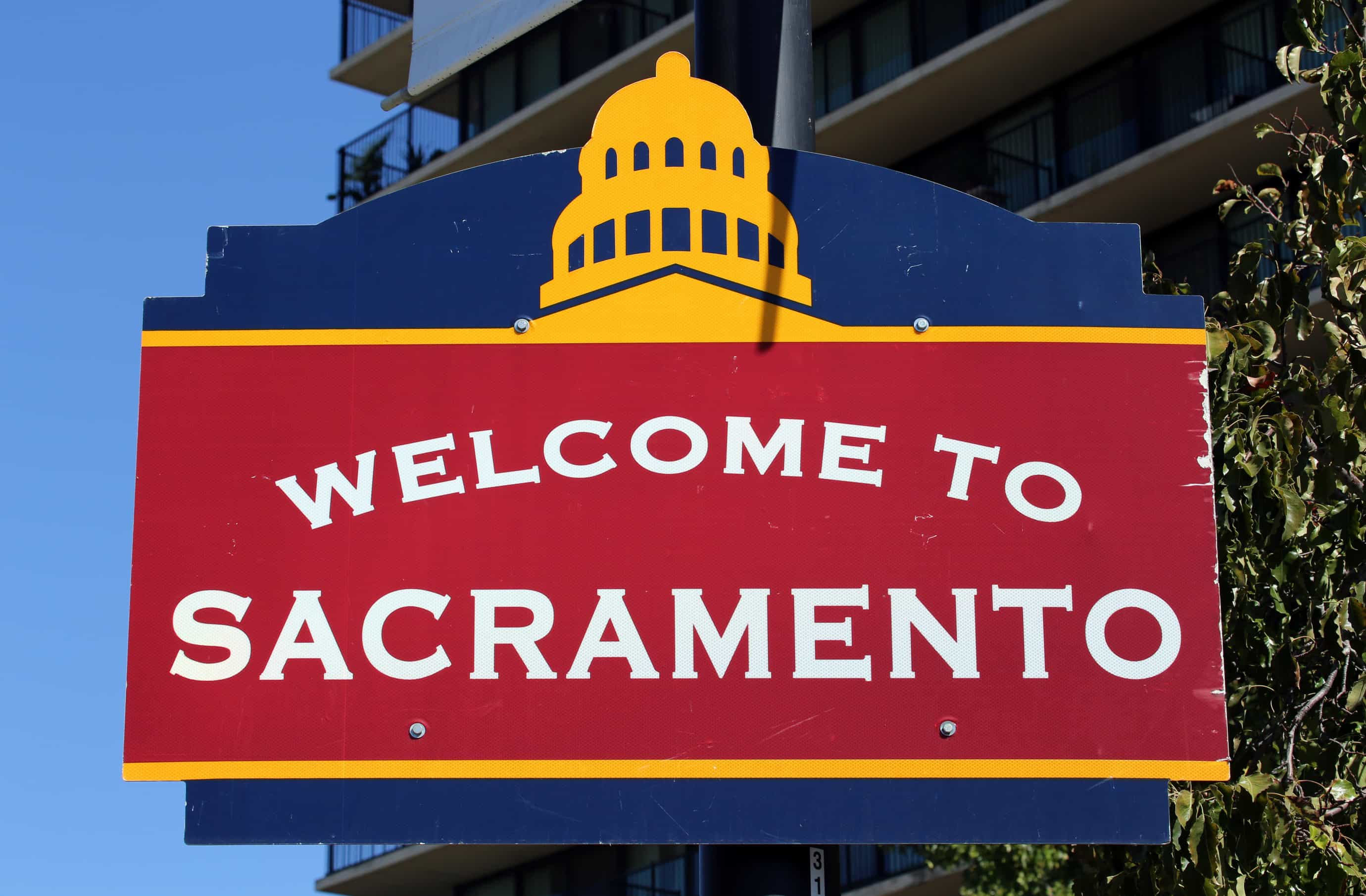Lessons from South Dakota
The transgender community's successful stop of a bill offers lessons for states facing anti-trans initiatives

Terri Bruce knows firsthand how engaging in face-to-face conversations can change people’s minds. The fifth-generation resident of Rapid City, S.D., says personal interactions — along with a good deal of patience and restraint — were essential to delivering a victory for the transgender community in the Mount Rushmore State.
“What I found is that, to most people, transgender is a concept and not something real,” Bruce says. “So my goal was to put a human face to something maybe they didn’t understand or see as a human issue, something that was abstract to them. I had contact with people who honestly changed their minds once they had a good grasp of some of these things. Just interacting with people, not even talking about the issue at hand, but talking about dogs, or fishing, or the weather, you become a real person and people can understand that you’re just like everybody else.”
The action by Bruce and others led to Gov. Dennis Daugaard vetoing an anti-trans “bathroom bill,” which targeted transgender schoolchildren. What made Daugaard’s veto so remarkable was that the odds were stacked so heavily against transgender people. Prior to his decision, Daugaard freely admitted that he had never met a transgender person. The bill was sent to his desk because South Dakota’s legislature is overwhelmingly dominated by Republicans, particularly those of the socially conservative stripe. And the nature of the bill — fear-mongering over “privacy concerns” for cisgender people who might be uncomfortable sharing facilities with transgender peers — had doomed pro-LGBT nondiscrimination ordinances in some other cities in recent years, including Pocatello, Idaho; Chattanooga, Tenn; Springfield, Mo.; and Houston, Texas.
South Dakota’s success in stopping the bathroom bill can provide a model for other states to follow when dealing with similar measures. According to the Human Rights Campaign, at least 44 anti-transgender bills were filed in 16 different states in 2016, more than twice the number that were introduced the prior year. Twenty-three of the bills specifically target transgender youth in bathrooms, changing facilities and school sports teams.
One of those states pushing such legislation is Tennessee, where — among other anti-LGBT bills — lawmakers will debate a bill forcing students to use only those restrooms and locker rooms that match the sex on their birth certificate. That provision is significant, because Tennessee is the only state that prevents people from ever changing the gender listed on their birth certificate.
Chris Sanders, director of the Tennessee Equality Project, says his organization has not only been preparing for hearings on the bill, but has been trying to put in place a media strategy to educate people about the importance of defeating it — and combating misinformation about the transgender community. Already, Tennessee Equality Project has been organizing clergy members to oppose the bill and has been placing favorable op-eds in papers around the state to try and convince residents that it is unnecessary and harmful to the state.
“This is purely driven by organizations like Alliance Defending Freedom, and you’ll recall that the RNC recently urged states to pass these,” Sanders says of the proposed anti-trans initiatives. “These are coming from the top. They’re not coming from Tennessee.”
There are many other parallels between the situation in Tennessee and the one that LGBT activists faced in South Dakota. Much like his fellow Republican Daugaard, Tennessee Gov. Bill Haslam is reticent to sign such a restrictive law into place. A spokeswoman for the governor told BuzzFeed News that Haslam is particularly worried about potential retaliatory action that could be taken against Tennessee, such as the loss of federal funding under Title IX’s prohibitions on sex discrimination.
“Currently in Tennessee, this issue is being handled on a local basis, situation by situation,” Jennifer Donnals, Haslam’s press secretary, said in a statement. “The governor trusts our teachers and local school boards to make necessary accommodations in those situations.”
The language mirrors that of Daugaard’s, used in his veto of South Dakota’s anti-trans bill. However, because gubernatorial vetoes in Tennessee can be overrode by a simple majority vote, Tennessee Equality Project is hoping to convince legislators that risking the loss of Title IX money is fiscally imprudent.
“If you look at Vanderbilt and Middle Tennessee State University state polls, the governor polls extremely well in Tennessee,” Sanders says, adding that Haslam’s popularity may give Republicans in the legislature pause about overriding the veto of a governor of their own party.
Chase Strangio, a staff attorney with the American Civil Liberties Union’s LGBT & HIV Project, calls the Tennessee bill the anti-transgender measure that poses the largest threat to the community at present. But he also warns that the ACLU is closely monitoring North Carolina, where Gov. Pat McCrory (R) — in the middle of a re-election campaign — may call a special session to propose anti-transgender legislation. It would either directly repeal or ask for voter approval on any local trans-inclusive nondiscrimination ordinances, like one that was recently approved by the Charlotte City Council.
Continuing with the political Right’s obsession with bathrooms, the conservative Family Policy Institute of Washington has filed a ballot initiative aimed at overturning a Washington State Human Rights Commission rule allowing transgender people to use restrooms and locker rooms consistent with their gender identity. The initiative was filed after Democrats and three Republican senators helped defeat a proposed bill that would have done the same thing.
“The reality is that the strategy nationally will be, and has been, for the last several months, elevating the voices and experiences of the trans community,” Strangio says of the messaging he expects LGBT organizations and their allies to use in future battles. “The key is highlighting the voices of trans people and explaining how these measures are harmful to the trans community.”
On the messaging front, it would behoove other states or national-level LGBT organizations to follow the example of South Dakota, adds Ashley Joubert-Gaddis, director of operations at The Center for Equality, an LGBT community center in Sioux Falls, S.D. The Center successfully arranged for Daugaard to meet with a transgender adult, two transgender youth and a parent of a transgender child during the five-day period when he was weighing whether to veto South Dakota’s bathroom bill or sign it into law.
“I think it’s a matter of fighting with grace and class,” says Joubert-Gaddis. “At no point did we become derogatory [towards LGBT opponents] or make demands. We made this about a personal issue…. As much as we were angry during this process, we made sure never to come across with the media or press to come off as angry. It was more of, ‘We’re pleading with you. These [anti-trans bills] are about children.'”
But Joubert-Gaddis also says that LGBT groups and allies need to push back aggressively and quickly — albeit politely — against misinformation or branding adopted by right-wing special interest groups, such as calling a measure like the bathroom bill a “privacy bill,” instead of an anti-transgender bill.
Terri Bruce adds that LGBT organizations can’t be afraid to address the issue of bathroom use themselves, and develop messaging that counteracts unfair assumptions or stereotypes about the transgender community.
“The bathroom is the hot-button topic right now. And until people really understand what the issue is, it’s going to continue to be the hot-button issue,” Bruce explains. “The picture that some people get in their minds is a man in a woman’s dress, going inside to use the women’s bathroom. And that’s not what transgender people do.
“I go to the bathroom because I have to go to the bathroom,” Bruce says. “All human beings have biological functions that we can’t ignore. And I believe we can really work through this by creating a level of understanding where the lightbulb turns on and people say, ‘Oh, okay, I get it now. It’s not that big of a deal.’ Bathrooms have stalls. They have doors. You go in and you close the door.”
While treating people, even the fiercest of LGBT rights opponents, with kindness and respect is important, so is perseverance. Bruce hopes that activists use the momentum from South Dakota to help shine a spotlight on other states pushing similar measures, and won’t be deterred from engaging their lawmakers just because they may face tough odds.
“We changed people’s hearts and minds. And we did it by treating people the way we want to be treated,” Bruce says. “I know it can be done elsewhere. Just come together, work as a unit, work towards one goal, not at cross-purposes with each other. If we did it in South Dakota, we can do it anywhere.”
Support Metro Weekly’s Journalism
These are challenging times for news organizations. And yet it’s crucial we stay active and provide vital resources and information to both our local readers and the world. So won’t you please take a moment and consider supporting Metro Weekly with a membership? For as little as $5 a month, you can help ensure Metro Weekly magazine and MetroWeekly.com remain free, viable resources as we provide the best, most diverse, culturally-resonant LGBTQ coverage in both the D.C. region and around the world. Memberships come with exclusive perks and discounts, your own personal digital delivery of each week’s magazine (and an archive), access to our Member's Lounge when it launches this fall, and exclusive members-only items like Metro Weekly Membership Mugs and Tote Bags! Check out all our membership levels here and please join us today!























